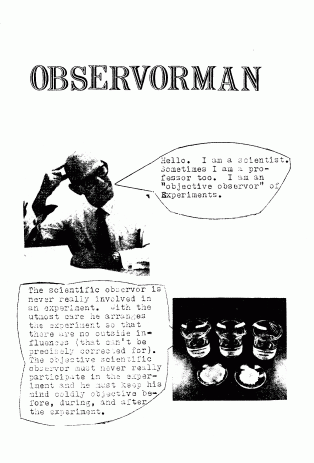
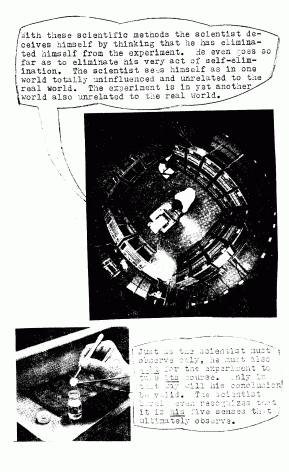
Hello. I am a scientist. Sometimes I am a professor too. I am an “objective observor” of Experiments.
The scientific observor is never really involved in an experiment. With the utmost care he arranges the experiment so that there are no outside influences (that can't be precisely corrected for). The objective scientific observor must never really participate in the experiment and he must keep his mind coldly objective before, during, and after the experiment.
1
With these scientific methods the scientist deceives himself by thinking that he has eliminated himself from the experiment. He even goes so far as to eliminate his very act of self-elimination. The scientist sees himself as in one world totally uninfluenced and unrelated to the real world. The experiment is in yet another world also unrelated to the real world.
Just as the scientist must observe only, he must also wait for the experiment to take its course. Only in that way will his conclusion be valid. The scientist barely even recognizes that it is his five senses that ultimately observe.
2
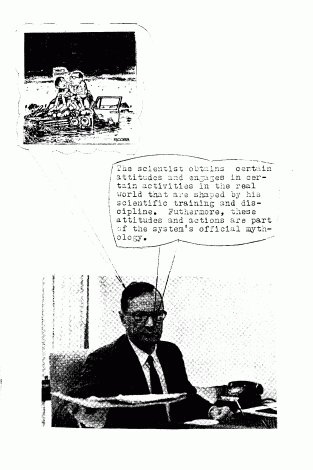
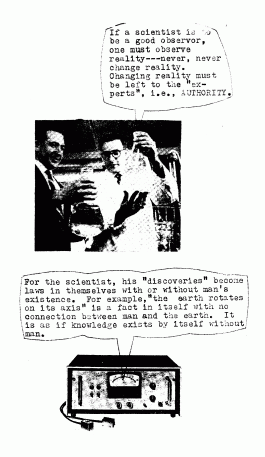
(speech balloon in top cartoon:
"What's ecology?")The scientist obtains certain attitudes and engages in certain activities in the real world that are shaped by his scientific training and discipline. Furthermore, these attitudes and actions are part of the system's official mythology.
3
If a scientist is to be a good observor, one must observe reality—never, never change reality. Changing reality must be left to the “experts”, i.e., AUTHORITY.
For the scientist, his “discoveries” become laws in themselves with or without man's existence. For example, "the earth rotates on its axis" is a fact in itself with no connection between man and the earth. It is as if knowledge exists by itself without man.
4
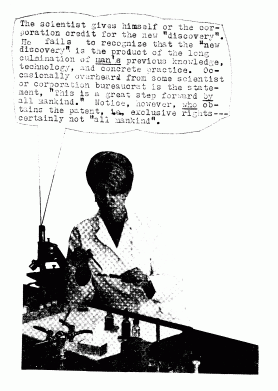
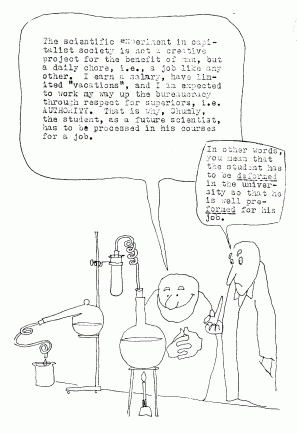
The scientist gives himself or the corporation credit for the new "discovery". He fails to recognize that the "new discovery" is the product of the long culmination of man's previous knowledge, technology, and concrete practice. Occasionally overheard from some scientist or corporation bureaucrat is the statement, "This is a great step forward by all mankind." Notice, however, who obtains the patent, i.e., exclusive rights—certainly not "all mankind".
5
The scientific experiment in capitalist society is not a creative project for the benefit of man, but a daily chore, i.e., a job like any other. I earn a salary, have limited "vacations", and I am expected to work my way up the bureaucracy through respect for superiors, i.e. AUTHORITY. That is why, Chumly, the student, as a future scientist, has to be processed in his courses for a job.
In other words, you mean that the student has to be deformed in the university so that he is well pre-formed for his job.
6
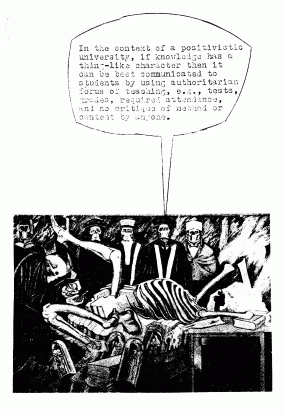
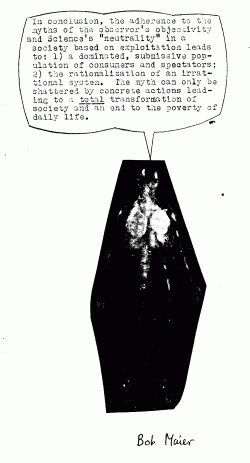
In the context of a positivistic university, if knowledge has a thing-like character then it can best be communicated to students by using authoritarian forms of teaching, e.g., tests, grades, required attendance, and no critique of method or content by anyone.
7
In conclusion, the adherence to the myths of the observor's objectivity and Science's "neutrality" in a society based on exploitation leads to: 1) a dominated, submissive population of consumers and spectators; 2) the rationalization of an irrational system. The myth can only be shattered by concrete actions leading to a total transformation of society and an end to the poverty of daily life.
8